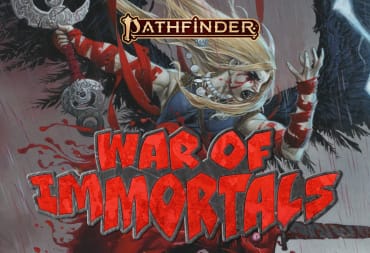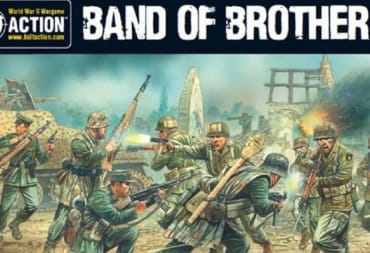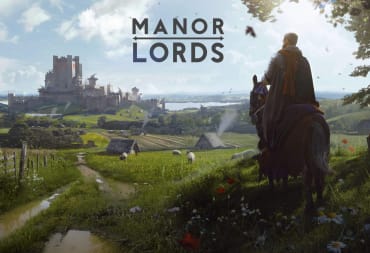You other gamers can’t deny, that when a DPS groups in at an itty bitty pace, with tiny numbers in your face you get … PISSED!
Unfortunately, you’ve just been victim to some impossibly low grade Sir Mix-A-Lot parody that I won’t be compensating anyone for. However, the message such as it is still stands. I’m a sucker for a good Min/Max, and today I want to tell you why.
Some Remedial Math
When we talk about Min/Maxing, what we’re really talking about is finding the greatest element or the least element, respectively, in the finite set of all the ways a person could possibly do whatever is being Min/Maxed. In the terminology of math definitions, the greatest element and least element are defined thus:
An element g of a subset S of a partially ordered set P is the greatest element of S if s <= g for all elements s of S.
An element g of a subset S of a partially ordered set P is the least element of S if g <= s for all elements s of S.
Probably the most accessible example of greatest and least elements in gaming comes from the MMO holy trinity of Threat Gain, Healing, and DPS. There’s a finite number of ways a player can arrange their talent points. There’s also a finite number of ways a player can gear their character. At the intersection of these 2 things is the theoretical DPS, threat gain, or healing for the player’s class. The folks at Elitist Jerks have been reverse engineering which class, spec, and gear set result in the highest theoretical DPS, healing, and threat gain since before WoW stopped being a game in 2009. Some of the discussions there were epic, and I became a better player because I read those forum threads.
A second example of finding the greatest or least element of a finite set in gaming is speed running. Speed runners are trying to find the set of inputs that results in the smallest amount of time played out of all possible inputs every time an input is required, which is still a finite, ordered set if a superlatively large one.
The final example I want to mention is arcade games, where the Min/Maxing was to determine the set of inputs that would lead to the highest score on the machine, with the trophy for doing so being the player putting their initials in the number 1 spot on the high score list or having their score displayed for all to see.
One more thing. The set of all humans currently living on Earth is a finite set. If one were to come up with a means to order that set, that set would have a greatest element and a least element. Populism and authoritarian progressivism, it seems, operate in direct contravention of mathematics.
Why Do It?
When I go off about how brokenly powerful a combination or synergy in a videogame is, which I am wont to do, occasionally I get questioning looks from folks inside and outside the gamer fraternity in equal measure. Why, they ask, am I so excited about something that, on casual observation, trivializes whatever game I am playing.
My first response is, “Why not do it.” Here’s an example. The melee build in Fallout 4 has the potential of 1-shotting boss type enemies (Mirelurk Queen, Deathclaw Alpha, etc.) from stealth after a certain point. Seeing that potential realized carries a high amount of value for me as a player, and increases the probability of me defeating the final boss and beating the game.
An older example comes from my days playing Bump ‘n’ Jump on Intellivision with my friends in the neighborhood. Each level in Bump ‘n’ Jump has a “pacifist bonus”—if a player completes the level without crashing any cars at all, they receive 50,000 points. The “50,000 bonus,” as we called it, resulted in victory head-to-head for whomever could acquire more of them in a given game. Contrast that with the best single level in terms of performance I can recall while playing, 30 car crashes on level 1, yields an end of level bonus of just 9,000 points. Check out this video for an example of what the 50,000 bonus looks like.
The player in this video goes for the 50,000 bonus in each of the first three levels, but even this player is not playing for the maximum theoretical high score. In order to do that, the player must land on the little islands in the middle of the jumps, scoring 1,000 points for each island the player lands on. By contrast, in level 4, the player decides to crash cars, and only receives a bonus of 9,000.
Notice what choosing to not go for the 50,000 bonus did in terms of performance. The player in the video scores 150,000 points in the first 3 levels, but only 21,000 points in the 2 levels after that, before running out of lives and ending the game.
If one wants to win at Bump ‘n’ Jump when playing other people, the obvious correct play is to go for the “50,000 bonus” on every level.
Which brings me to my second defense for Min/Max’ing. Min/Max’ing provides the greatest likelihood of winning, which is the point of playing the game in the first place. Many people misidentify fun as the reason for games to exist. It’s so common at this point, I’ll go so far as to say most people misidentify fun as the reason games exist.
The trouble with this misidentification is two-fold. First, fun is subjective. To me, winning is fun; consequently, the correct course of action in all cases when playing a game is to do the things that win. Alternatively, when I do things that make my less likely to win, I am doing it as a conscientious choice to either experiment, or because I’ve evaluated the social capital earned by losing has more value than winning—ergo “letting someone win.”
Second, fun is not a result of playing a game, but a byproduct of engaging in the act of playing a game to achieve the result, winning or losing. Don’t get me wrong, fun is a useful barometer of determining if one game is better than another. If one game makes playing it feel like getting a tooth pulled sans Novocain, and another game makes playing it feel like dollar oral night in Las Vegas, obviously gamers are going to choose to play the latter. However, at the end of the day, players are either trying to achieve the high score, trying to beat their friends, or trying to roll the end credits or 100% the games they are playing.
Sure, there are genres where the definition of winning gets a little squishy, like MMOs, but if gamers were capable of being truly honest with themselves, wouldn’t they admit the group with no more content to defeat for the first time has “won” PvE when it comes to an MMO?
That said, fun’s value as a discriminator of relative quality between games cannot inherently be the reason for games to exist, nor the motivator for playing them generally. Usually, fun is used as the scapegoat to rationalize and defend poor play. Your mileage may vary by genre, but in MMOs, MOBAs, and other team-based, competitive genres, fun is identified up front as the “Get Out of Jail Free” card for poor performance. Usually, the thought thread goes like this:
I play games for fun. Therefore, I shouldn’t have to play <best performing strategy> because this one time I did <sub-optimal strategy> and it <exaggerated anecdote of performance>. This is my game; how dare you tell me how to play!
How dare I, indeed. I’m your teammate, and when engaged in a team activity, playing poorly not only wastes your time, but the time of everyone else on the team, especially when a premium is placed on winning, like MMO raids or MOBA competitive modes. Suffice it to say the value of the time of the individual is insignificant when compared to the value of the time for all of his/her teammates.
There are many more examples of Min/Maxing, and an individual gamer can apply the principles of finding the greatest or least element of a finite, ordered set to any number of things a game, and as games have become more complex, the number of individual things a gamer can Min/Max has increased. Modern gaming is a Min/Maxer's paradise.
Okay Raptors, time to tell me where I’m off base. Do you Min/Max? When do you choose to not Min/Max?
Have a tip, or want to point out something we missed? Leave a Comment or e-mail us at tips@techraptor.net













